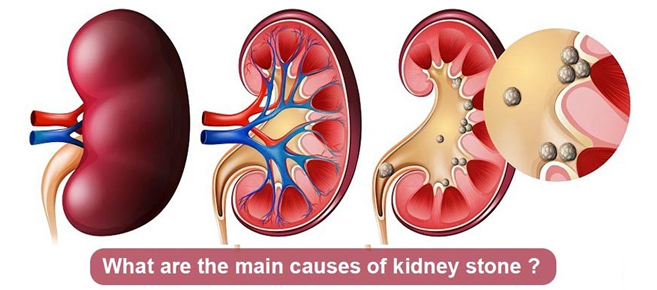Kidney Stone Disease

Best Kidney Dialysis Treatment in Borivali
What is called kidney dialysis?
Dr.Paras Dedhia is one of the Best kidney Dialysis Treatment in Borivali.Dialysis is a Procedure to remove waste products and extra fluid from the blood when the kidneys stop working properly. It often involves pumping blood into a machine for purification.
Normally, the kidneys filter the blood,removing harmful waste products and excess fluid and turning them into urine, which is excreted from the body.Why is Dialysis Performed?
Dialysis is Performed to replace the function of the kidneys when they can no longer perform their vital tasks.The kidneys are responsible for filtering waste products,excess fluid and electrolytes from the blood, and also help regulate blood pressure, red blood cell production and the balance of minerals in the body such as calcium and phosphorus.When kidney function is impaired, dialysis is used to artificially perform these functions.
Here are the Main Reasons why dialysis is performed
1)To Remove Waste ProductsWhen the kidneys fail, waste products (such as urea and creatinine) build up in the blood because the kidneys can no longer filter them out. Dialysis helps remove these wastes and prevent toxic effects on the body.
2)Controlling Fluid balance
The kidneys help regulate the amount of fluid in the body by excreting excess water with urine. When kidney function decreases, fluid can build up in the body, leading to swelling (edema) in areas such as the feet, ankles, and lungs (pulmonary edema). Dialysis helps flush out excess fluid and restore balance.
3)Electrolyte Balance
The kidneys also help regulate levels of important electrolytes such as potassium, sodium and calcium. When kidney function is impaired, there can be a dangerous imbalance of these electrolytes that can cause problems such as heart arrhythmias, muscle weakness, or bone abnormalities. Dialysis helps restore normal electrolyte levels.
4)Blood Pressure Regulation
The kidneys play a role in maintaining blood pressure by controlling blood volume and regulating sodium balance. In kidney failure, Blood Pressure can rise (hypertension). Dialysis can help lower blood pressure by removing excess fluid and restoring balance.
5)Support for patients with kidney failure
In end-stage renal failure, when kidney function is less than 15% of normal, dialysis is necessary as a life-saving measure. Without dialysis or a kidney transplant, the patient will not survive due to the accumulation of toxins and excess fluid in the body.
What are the reasons for kidney Dialysis?
Kidney dialysis is needed when the kidneys can no longer function effectively to filter waste products, excess fluid, and toxins from the blood. This is usually due to chronic kidney disease (CKD) that progresses over time. There are several conditions that can lead to kidney failure and ultimately the need for dialysis.
Cause:
High Blood Sugar levels can damage the blood vessels in the kidneys over time, impairing their ability to filter waste.Consequence
:This is one of the main causes of kidney failure, which often leads to the need for dialysis.Dialysis does not cure kidney disease, but it can help manage the symptoms of kidney failure and prolong life.Depending on the patient's condition, dialysis may be needed for a long period of time or temporarily.
kidney Dialysis Treatment
Kidney Dialysis is a life-saving treatment for individuals whose kidneys are no longer functioning properly. It helps perform the kidneys' essential functions, such as filtering waste, toxins, and excess fluids from the blood, regulating electrolyte levels, and maintaining overall balance in the body.

 WhatsApp
WhatsApp